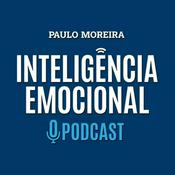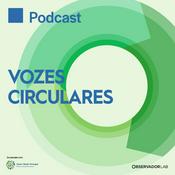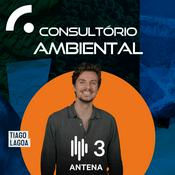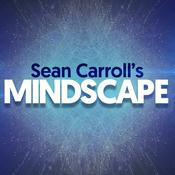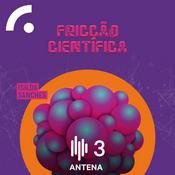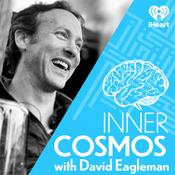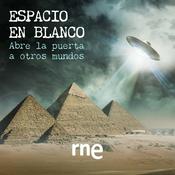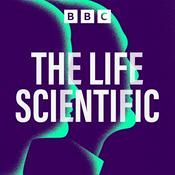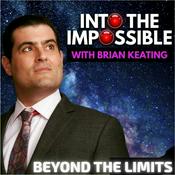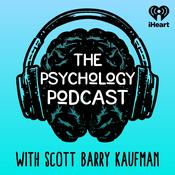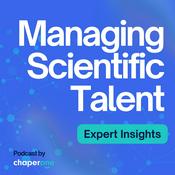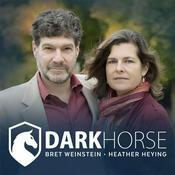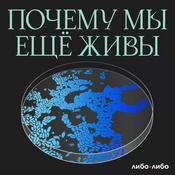224 episódios
- This week on the podcast, Professor Luke O’Neill turns his attention to a condition that’s often misunderstood and far more common than many people realise: Lewy Body Dementia.
Requested by listener Eben Stewart ahead of World Lewy Body Dementia Day on January 28th, the episode looks at what causes LBD, how it differs from Alzheimer’s and Parkinson’s, and why so many people are living with it without a diagnosis. Around 10,000 people in Ireland are believed to have Lewy Body Dementia, yet only a fraction are formally on the register — a gap that has real consequences for care, treatment, and awareness.
Luke explains how abnormal protein clumps, known as Lewy bodies, build up in nerve cells and trigger inflammation and neurodegeneration. LBD affects both cortical and sub-cortical regions of the brain. That helps explain why early symptoms are often cognitive rather than physical — confusion, memory problems, difficulty with decision-making, and, in many cases, vivid visual hallucinations and delusions.
As the condition progresses, Parkinson’s-like symptoms such as tremor and rigidity usually emerge too. Treatment is complex and requires care, with some anti-psychotic medications risking a worsening of symptoms, while drugs like L-Dopa can help manage movement issues. Luke also talks about ongoing research, including work happening in his own lab on potential new treatments now in clinical trials.
The episode also touches on why Lewy Body Dementia is more common in men, why it typically appears after the age of 50, and the role family history can play. And it reflects on the stories of well-known figures who lived with Parkinson’s and LBD, including Robin Williams, Glen Campbell and Michael J Fox, whose experiences helped shine a light on just how challenging — and misunderstood — LBD can be.
Trinity College Dublin will host a Lewy Body Dementia awareness event on January 28th in Unit 18 on the Pearse Street campus from 12pm, as part of efforts to improve understanding and recognition of the condition. - Why do some people love wine, while others can’t stand it? Why did Covid strip food of its pleasure for so many? And how much of what we call “taste” is really happening in the nose, the brain, and even our memories?
This week's podcast takes on a listener-requested topic: the science of taste and flavour. Professor Luke O’Neill explains why taste is far more complex than the tongue alone, with up to 80% of flavour driven by smell and only around 20% by taste itself. He walks through the five core tastes — sweet, sour, salty, bitter and umami — and explains how specialised receptors in the tongue, nose, throat and even the stomach detect chemicals in food. These discoveries were so fundamental they led to Nobel Prizes.
The episode also explores how nerves shape flavour: why chilli feels hot, mint feels cool, and fizzy drinks tingle. Texture matters too. Creaminess, crispiness, and mouthfeel all shape how food is experienced. Vision and psychology play their part as well, from expectation bias to the power of nostalgia, famously captured by Proust’s madeleine.
Genetics turn out to be crucial. Some people find coriander tastes like soap; others find it fresh and citrusy. Some recoil from sprouts, broccoli, chilli or umami-rich foods, while others seek them out. Finally, Luke looks at how chefs have been quietly mastering this science for centuries, using fat to enhance flavour, stacking umami to build intensity, and manipulating texture and aroma to transform how food tastes.
This episode was prompted by listener requests from Stephen and Eoin. If there’s a science topic you’d like Luke to tackle next, you can email [email protected]. - Ireland, like much of Europe, is in the middle of a serious flu outbreak. This week’s podcast focuses on why this year’s influenza wave is hitting so hard, who is most at risk, and what actually helps.
Professor Luke O’Neill explains why flu thrives in winter, spreading easily indoors where ventilation is poor. He outlines the classic flu symptoms — high temperature, severe fatigue, aches and pains, cough and runny nose — and why this strain is leaving many people bedridden for days rather than just mildly unwell. Flu is currently a bigger problem than Covid — widespread immunity has made Covid more benign, while influenza continues to evolve, throwing up new variants every winter.
The episode looks at who needs to be especially careful, and why flu season is such a concern for hospitals, with emergency departments under pressure and trolley numbers rising. Luke also discusses why this year’s vaccine has been less well matched than usual, after the virus mutated on its way from the southern to the northern hemisphere — and why it still matters.
And if flu symptoms do strike, Luke’s advice is simple: rest, stay hydrated, manage fever and pain, and don’t panic. - Every January, millions of us promise that this will be the year we finally change our habits. We’ll sleep more, stress less, move our bodies, eat better, learn something new, or finally tackle the clutter that’s been quietly judging us from the corner of the room. But by spring, most of those resolutions are long forgotten.
On this week’s podcast, Professor Luke O’Neill digs into what research really tells us about New Year resolutions — why we make them, why so many fail, and how we can dramatically improve our chances of sticking with them.
Luke explains why the pandemic triggered a surge in resolution-making, how the brain responds to fresh starts, and why January gym memberships soar even as long-term attendance collapses. He also shares evidence-based strategies that actually work, from setting specific and measurable goals to harnessing social support, using apps, and learning new skills that boost brain health as well as motivation.
This isn’t about willpower or guilt. It’s about understanding how humans change — slowly, imperfectly, and with the right conditions. If you’re setting intentions for the year ahead, this is the science you want on your side.
You can email Luke with questions or suggestions for future episodes at [email protected]. - For his Christmas podcast, Professor Luke dives into one of the oldest, strangest and most delightful human behaviours: kissing. And yes, there really are scientists who study it. Kissologists? Why not. Someone has to keep the flame of enquiry burning under the mistletoe.
Kissing isn’t new. In fact, our primate ancestors may have been at it 21 million years ago. Humans, chimpanzees, bonobos and orangutans all kiss, and the trail of evolution suggests the ancient snog goes back to a shared forebear long before Christmas was invented.
So why do we do it? Luke’s answer brings joy to his immunologist’s heart: kissing is fundamentally about the immune system. It’s bonding, soothing, socially rewarding… but it’s also a biological exchange of information. When we kiss, we taste another person’s immune profile through their saliva. We’re wired to choose partners whose immune systems are similar enough to blend but different enough to give our potential offspring an advantage — the Goldilocks zone of mate selection.
Kissing is also bound up in how humans live. We’re pack animals; our wellbeing depends on social closeness. For parents, early kissing and mouth-to-mouth feeding once helped babies survive. For adults, it floods the brain with oxytocin — the same hormone released during breastfeeding — building trust, comfort and connection.
And yes, kissing is… messy. Saliva production surges to dissolve bacteria. Mouth microbes are swapped. Germs hitch a lift. Glandular fever is the classic “kissing disease,” especially among teenagers, and herpes simplex moves easily through saliva. The upside? Some research shows kissing can reduce allergic reactions — including a study where hives became less severe after a 30-minute smooch.
The benefits stack up: reduced stress, better bonding, endorphin release, raised heart rate, improved mood, and even potential perks for your complexion. A deep kiss works 24 facial muscles, stimulates circulation and boosts collagen. Science says the Christmas kiss might be good for your skin as well as your soul.
Mais podcasts de Ciência
Podcasts em tendência em Ciência
Sobre Show Me the Science with Luke O'Neill
Have you ever wondered why we laugh or if you can really die of a broken heart? Join Professor Luke O'Neill on ‘Show Me the Science’ as he tackles a different issue each week; from the serious to the silly, all explained through science. This Newstalk production will open the world of science to people of all ages. New episodes every Thursday. Show me the Science is with thanks to B Braun.CONVERSATION THAT COUNTS | Ireland’s national independent talk station for news, sport, analysis and entertainmentListen to Newstalk at http://newstalk.com/listenlive | Download the GoLoud app now, the new home for Newstalk
Sítio Web de podcastOuve Show Me the Science with Luke O'Neill, Boring History for Sleep e muitos outros podcasts de todo o mundo com a aplicação radio.pt
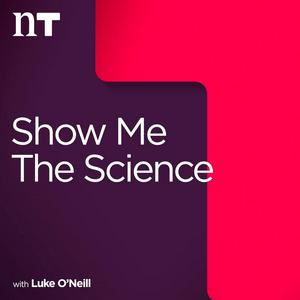
Obtenha a aplicação gratuita radio.pt
- Guardar rádios e podcasts favoritos
- Transmissão via Wi-Fi ou Bluetooth
- Carplay & Android Audo compatìvel
- E ainda mais funções
Obtenha a aplicação gratuita radio.pt
- Guardar rádios e podcasts favoritos
- Transmissão via Wi-Fi ou Bluetooth
- Carplay & Android Audo compatìvel
- E ainda mais funções


Show Me the Science with Luke O'Neill
Leia o código,
descarregue a aplicação,
ouça.
descarregue a aplicação,
ouça.


